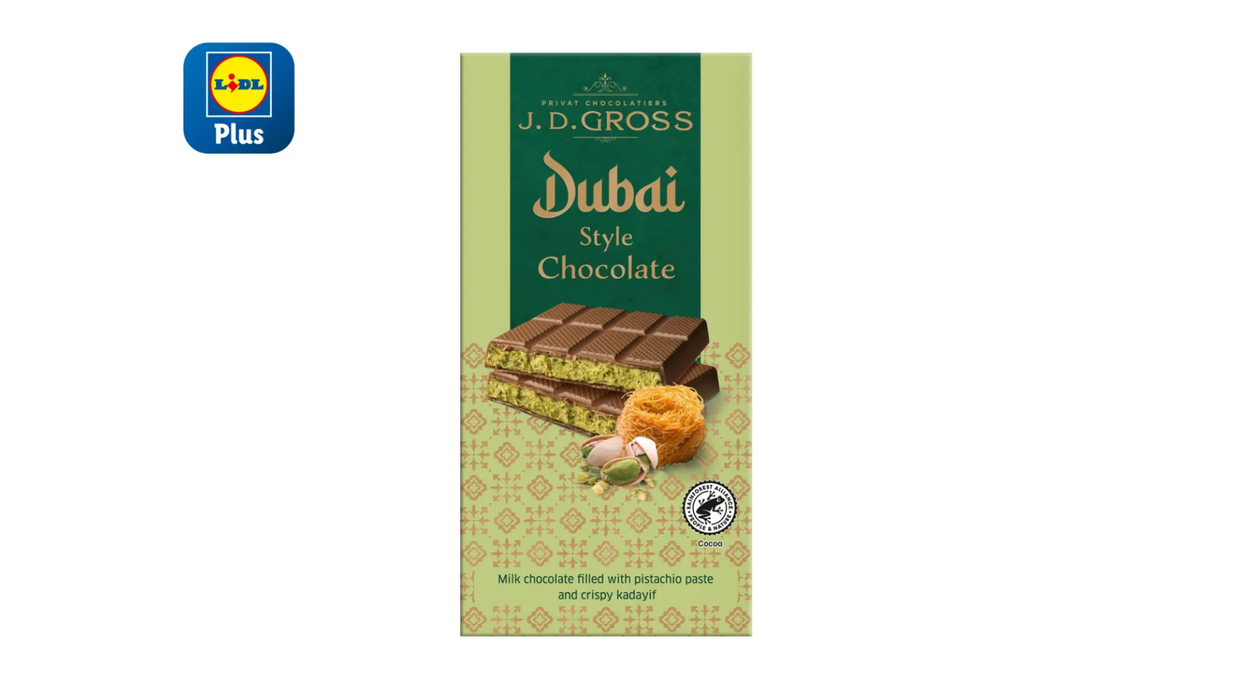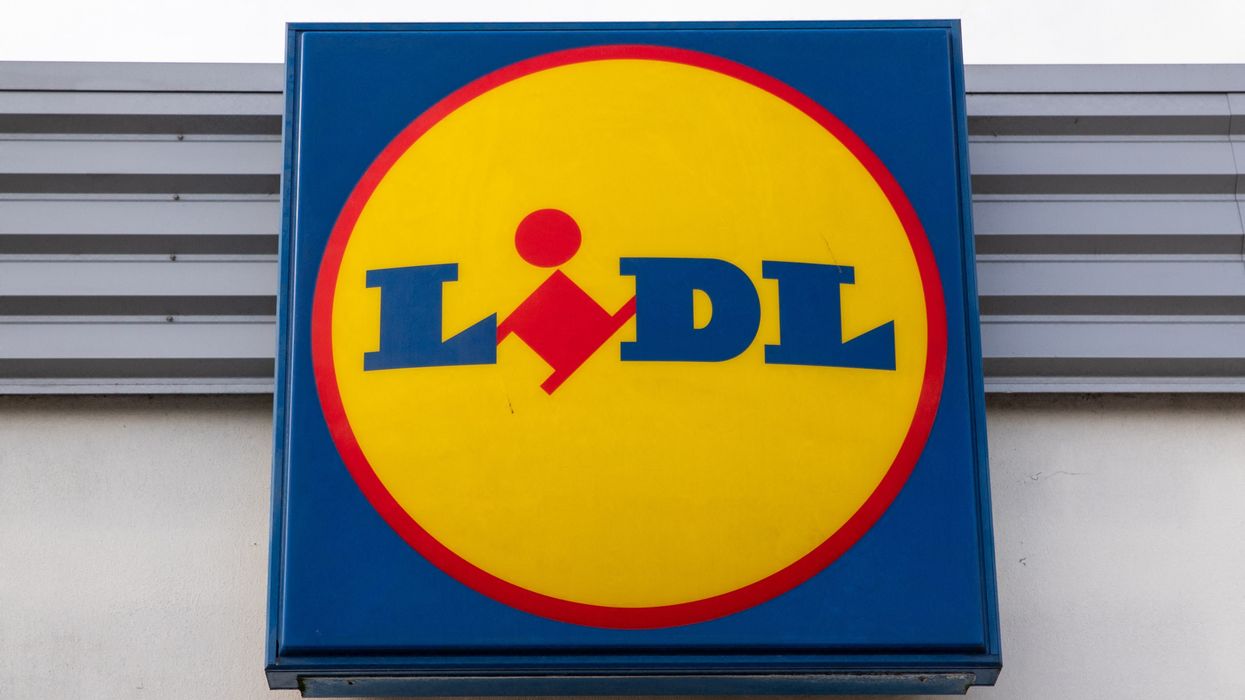The Dubai-style chocolate bar has quickly become a sensation across Europe, with supermarkets like Lidl stocking recreations of this luxurious treat. Originally created by Fix Dessert Chocolatier in the United Arab Emirates, the chocolate’s appeal has grown far beyond its origins, leading to a frenzy among shoppers and a surge in demand across the continent. But what exactly is driving this chocolate craze? Here are the top five reasons why Lidl’s Dubai-style chocolate is flying off the shelves.
1. Exotic ingredients and a unique flavour profile
At the core of the Dubai-style chocolate’s popularity is its exotic and indulgent combination of ingredients. The original creation by Fix Dessert Chocolatier, known as the “Can’t Get Knafeh Of It” bar, blends high-quality Belgian or Swiss milk chocolate with a rich pistachio filling and a crispy kataifi pastry. This fusion of flavours creates a truly unique taste experience that sets it apart from more traditional European chocolates.
The use of premium ingredients, such as Swiss chocolate and Middle Eastern knafeh, elevates the chocolate bar to a luxury product. The rich textures and flavours have captured the attention of chocolate lovers, making it a must-try treat for those in search of something new and exciting.
2. Social media hype driving popularity
The Dubai chocolate bar owes much of its meteoric rise in popularity to the power of social media. Platforms like TikTok and Instagram have played a significant role in spreading the word, with influencers and food bloggers showcasing the luxurious bar to millions of followers. Viral unboxing videos, taste tests, and reviews have all contributed to building the hype around this sweet treat.
As more people post about their experience with the Dubai-style chocolate, the desire to join the trend and share their own encounters with the bar continues to grow. Social media has amplified the chocolate’s appeal, transforming it from a simple indulgence into a viral sensation that everyone wants to try.
3. Limited availability and the scarcity effect
One of the key drivers of the Dubai chocolate craze is its limited availability. The original handmade bars from Fix Dessert Chocolatier are only available in the UAE, which has added to the exclusivity of the product. In Europe, recreations from supermarkets like Lidl and premium chocolatiers like Lindt are also in short supply, often selling out within minutes of hitting the shelves.

This scarcity has created a sense of urgency among shoppers, who worry about missing out on the chance to purchase the chocolate. As a result, buyers are even resorting to queuing outside stores or purchasing the bars in bulk to ensure they don’t leave empty-handed. The limited stock, combined with high demand, has driven the product’s desirability and contributed to its cult-like status.
4. Resale frenzy and markups
With the chocolate’s popularity far exceeding supply, resale markets have emerged, further fuelling the frenzy. In countries like Portugal, Lidl’s Dubai-style chocolate bars, which originally retail for €4.99, are being resold for up to four times the price on platforms like OLX and Vinted. According to reports, this markup has made the chocolate a valuable commodity for those looking to capitalise on the scarcity.
The demand for the product has pushed prices higher, making the bars more desirable for those who couldn’t get their hands on them initially. The resale market reflects the high value attached to the chocolate, with fans willing to pay a premium to experience the unique flavours.
5. The appeal of homemade alternatives
For chocolate lovers who have been unable to find the Dubai-style bars in stores, homemade versions have gained traction as a popular alternative. Social media influencers and food content creators have begun sharing recipes that mimic the luxurious flavours of the original bar. Using ingredients like Belgian chocolate, pistachios, and kataifi, these homemade recreations aim to bring the magic of the Dubai-style chocolate into kitchens across Europe.
The rise of these DIY versions highlights the versatility of the chocolate and the determination of fans to experience its unique taste, even if they can’t find the official product. It also showcases how the Dubai-style chocolate has become more than just a treat—it’s inspired creativity and a broader cultural appeal.
The Dubai chocolate craze continues
Lidl’s Dubai-style chocolate has captured the hearts of sweet lovers across Europe, becoming one of the most coveted treats on the market. From its exotic ingredients and social media fame to its scarcity and high resale value, this chocolate bar has become a symbol of indulgence and exclusivity. Whether it’s the allure of trying something different or the desire to join a viral trend, the demand for Dubai-style chocolate shows no signs of slowing down.
For those who haven’t yet tasted it, the hunt continues. With limited availability and increasing popularity, getting your hands on this luxurious chocolate might be a challenge, but for many, it’s worth the effort. After all, who wouldn’t want to experience the sweet sensation that has taken Europe by storm?





